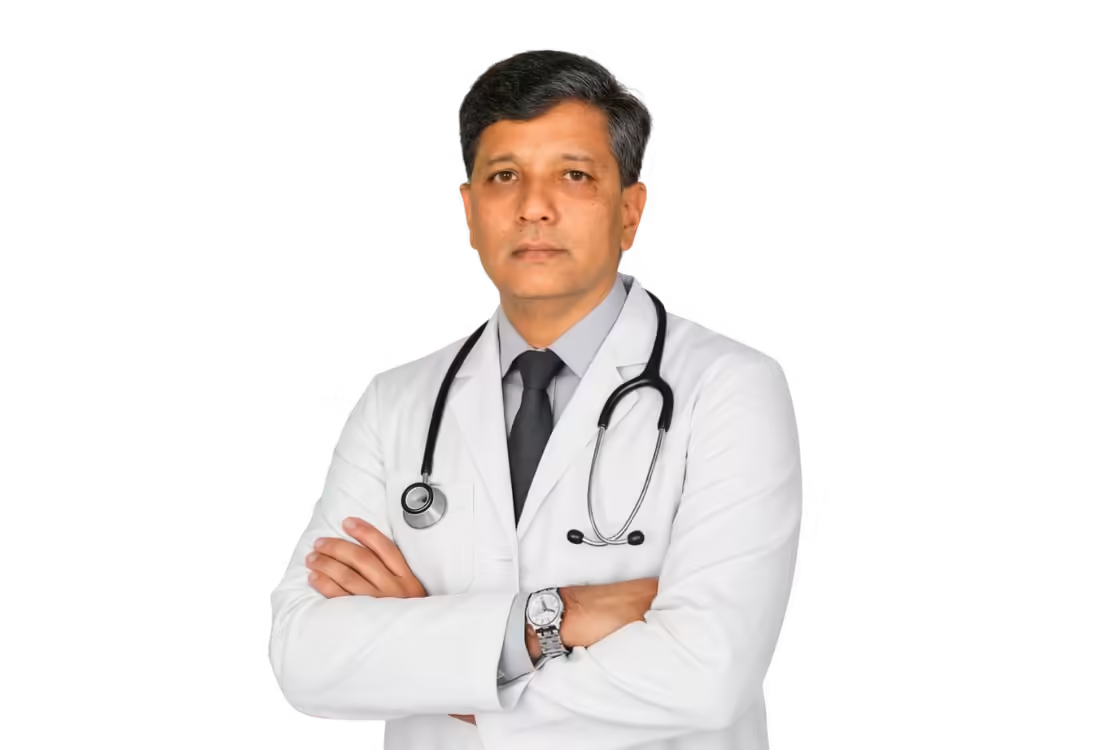
Premenstrual Syndrome Treatment (PMS) in Hyderabad: Compassionate Care at Lux Hospitals
Each month, millions of women suffer from premenstrual syndrome (PMS), a common but frequently misunderstood illness. PMS can have a significant effect on a woman’s physical and mental well-being, which can cause everything from mood swings and exhaustion to bloating and cramping.At Lux Hospitals, Gachibowli, we understand how disruptive PMS can be, and our dedicated team of gynecologists and specialists offers advanced premenstrual syndrome treatment in Hyderabad. We provide compassionate, evidence-based care that empowers women to manage their symptoms and reclaim control over their daily lives.
What is PMS (Premenstrual Syndrome)?
The term “premenstrual syndrome” (PMS) describes a group of behavioral, emotional, and physical symptoms that appear one to two weeks before a woman’s menstrual cycle. Once the menstrual cycle starts, these symptoms usually go away. Changes in hormones, especially those related to progesterone and estrogen, during the menstrual cycle are associated with PMS. While some women may only experience mild symptoms, others face severe disturbances that affect work, relationships, and overall quality of life.
Causes of Premenstural syndrome
- Hormonal Imbalances
- Genetics or family history of PMS
- High levels of stress
- Nutritional deficiencies (e.g., magnesium, vitamin B6)
- underlying mental health conditions including depression or anxiety
In other words, PMS can be influenced by your body’s chemistry, emotional well-being, and lifestyle habits.
Symptoms of Premenstrual Syndrome
The intensity and type of premenstrual syndrome symptoms vary from woman to woman, but the most commonly reported include:
Physical Symptoms
- Bloating or water retention
- Breast tenderness
- Headaches or migraines
- Fatigue or low energy
- Joint or muscle pain
- Cramping or abdominal discomfort
- Acne flare-ups
- Constipation or diarrhea
Emotional & Behavioral Symptoms
- Mood swings or irritability
- Anxiety or tension
- Sadness or depression
- Difficulty concentrating
- Sleep disturbances
- Changes in libido
- Appetite changes or food cravings
If these symptoms continue to affect you in your day-to-day activities, it’s time to consider professional premenstrual syndrome treatment.
Diagnosis of PMS
Diagnosis of PMS involves a detailed medical history, monitoring symptoms for two or more cycles of menstruation, as well as excluding other illnesses like thyroid issues or depression.
- Symptom tracking and cycle analysis
- Hormonal tests, if needed
- Psychological assessment (in severe cases)
- Nutritional and lifestyle evaluation
We focus on understanding the whole picture to deliver the most effective premenstrual syndrome treatment tailored to you.
Available Treatment options for Premenstrual Syndrome
At Lux Hospitals, we believe in a holistic and individualized approach to premenstrual syndrome treatments. Depending on the kind and severity of your symptoms, we provide a variety of medication, lifestyle, and nutritional therapies.
Lifestyle Modifications
- Regular physical activity (yoga, walking, or aerobic exercises)
- Adequate sleep and stress reduction practices (meditation, journaling)
- Reducing caffeine, alcohol, and sugar intake
- Quitting smoking
Nutritional Therapy
Our in-house dieticians create tailored plans to reduce bloating, fatigue, and irritability. We emphasize foods that regulate blood sugar, balance hormones, and reduce inflammation.
Medications
- Pain relievers like ibuprofen for cramps and headaches
- Antidepressants (SSRIs) for mood symptoms
- Hormonal treatments like oral contraceptives to stabilize hormone levels
- Diuretics for reducing fluid retention and bloating
- Anti-anxiety medications, if needed on a short-term basis
Cognitive Behavioral Therapy (CBT)
CBT works particularly well for people who have emotional symptoms. It helps identify negative thinking patterns and improve stress management.
Advanced PMS Treatment for PMDD
For females suffering from severe forms of Premenstrual Dysphoric Disorder (PMDD), of PMS we offer advanced treatments, combining hormonal therapies, counseling, and nutritional support for lasting relief.
Are You a Candidate for PMS Treatment?
- Your symptoms disrupt daily life or relationships
- Over-the-counter remedies don’t help.
- You experience extreme emotional changes every cycle.
- Do you feel helpless or overwhelmed before your period?
- You’ve been diagnosed with PMDD.
Don’t suffer in silence. PMS is real, and help is available.
Why Choose Lux Hospitals for Premenstrual Syndrome Treatment in Hyderabad?
- Expert Surgeons: Our board-certified gynecology surgeons have extensive experience in gynecology procedures.
- Advanced Techniques: We utilize the latest minimally invasive and traditional surgical techniques for optimal results.
- Personalized Treatment Plans: Each procedure is tailored to suit individual aesthetic goals.
- Comprehensive Care: We offer proper pre-and post-operative care to ensure a smooth recovery.
- State-of-the-Art Facility: Our hospital is equipped with modern technology for safe and effective gynecology surgeries.
- Positive Patient Experiences: Our satisfied patients vouch for the quality and success of our procedures.
Benefits of PMS Treatment at Lux Hospitals
- Significant reduction in PMS symptoms
- Improved emotional balance and mental clarity
- Better energy and physical comfort
- Long-term lifestyle improvement
- Supportive follow-ups and cycle tracking
- Confidential, judgment-free care
Testimonials
"I could walk on day 2 of my surgery"
Dr.Harshitha is the safest hands to be in. I underwent myomectomy for fibroids , I could walk on day 2 of my surgery with a fast recovery. Mam gives all the time you need for consultation, listens very patiently. At Lux hospital, all the staff is very friendly and caring and cleanliness maintained 24/7

Kunapuri Renuka
"Uterine fibroid and went on with a myomectomy"
I was diagnosed with large uterine fibroid and went on with a myomectomy to get it removed at Lux Speciality Hospital. The treatment which I received at Lux was very satisfactory. Dr.Harshitha en visible, thank you very much for that.

Sirigiri Prashanthi Prashanthi
"She gave me sufficient time and correct advice"
Dr.Harshitha is such wonderful doctor. She is very friendly and intelligent Dr . She make me very comfortable. After I got operated for hysterectomy I m doing very well after that. At every appointment she gave me sufficient time and correct advice. God Bless you Dr.

Divya S
"Good laparoscopic Gynecologist "
Dr.Praginia is an exceptional laparoscopic surgeon. The surgery was done with quick recovery time. I felt reassured throughout the entire process. The entire OT staff and anaesthesia team was extremely good. The support staff was also professional and caring, which made the experience even better.I highly recommend Dr.Harshitha to anyone seeking a good laparoscopic Gynecologist . I am very happy with the care I received.

Vandu Nana (Vandu)
Latest Health Articles by Lux
Frequently Asked Questions
Premenstrual Syndrome (PMS) refers to a group of emotional, Behavioral and physical signs and symptoms that appear in the days before a woman's period. It’s linked to hormonal changes during the menstrual cycle.
Common symptoms include mood swings, irritability, bloating, breast tenderness, fatigue, food cravings, headaches, and anxiety. Symptoms usually go away once the period starts.
Yes. Without treatment, PMS symptoms may worsen, especially with stress or hormonal changes. Timely care offers faster relief and better quality of life.
PMS does not occur during pregnancy, but early pregnancy symptoms may mimic PMS. If you're unsure, it’s best to consult a doctor for proper diagnosis and a pregnancy test.
Common early signs include irritability, abdominal cramps, fatigue, headaches, and food cravings. If these symptoms occur consistently before your period, you might be experiencing PMS
Yes, premenstrual syndrome symptoms and pregnancy symptoms often overlap. Both may include breast soreness, fatigue, and mood changes. However, missed periods, nausea, and a positive pregnancy test are more specific to pregnancy.
At Lux Hospitals, Gachibowli, we provide expert care and personalized treatment plans for PMS. Our team includes some of the best PMS specialists in Hyderabad, offering evidence-based therapies and compassionate support.
The cost varies depending on the treatment methods such as lifestyle changes, medications, or therapy. A consultation will give you a clear cost estimate.
Our website makes it simple for you to schedule an online appointment, call us at 07969084444, or email care@luxhospitals.com. We’re here to help you schedule a consultation at your convenience.





















